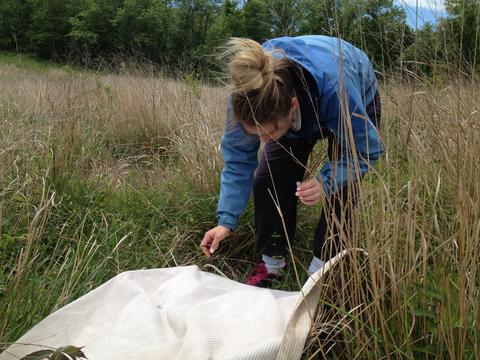
Determination of critical components of pathogen transmission is essential in the development of effective interventions against important tick-borne infectious disease threats such as Lyme disease and Babesiosis. Accordingly, we are using population genomic approaches to understand the evolutionary history of the tick parasites responsible for these diseases, Borrelia burgdorferi and Babesia microti, to understand their patterns and levels of genomic differentiation, reconstruct the invasion dynamics in Northeastern US and across North America, evaluate the importance of multiple vs. single strain infection, investigate the contribution of diverse vertebrate hosts in parasite transmission, and eventually relate patterns of genomic differentiation to traits of epidemiological relevance. To access the parasite genomes directly from field-collected samples from either the tick or the vertebrate hosts we have developed novel genomic approaches to retrieve genomic data from mixed template samples, where the any genome signal of the pathogen is overwhelmed by that of its host. These methods are of general interest to a variety of researchers interested in retrieving either parasite or symbiont genomic data directly from field samples of their vectors or hosts. This project is in collaboration with: Maria Duik-Vasser (Columbia University), Peter Krause (EPH-Yale), Choukri Ben-Mamoun (Yale School of Medicine) and Durland Fish (EPH-Yale). Postdoctoral Associates: Giovanna Carpi and Deborah Lanterbecq. Yale Graduate Student Katharine Walter; Undergraduates: Peter Flynn and James Underwood, and Research Assistant Emre Aksoy.
